- Arakan residents call for air raid warning systems amid surge in junta airstrikes
- Arakan’s Breathing Space (or) Mizoram–Arakan Trade and Business
- Death toll rises to 18 after junta airstrike on Ponnagyun village market
- Regime arrests dozens of Muslims in Sittwe over alleged Arakan Army links
- Over 200 IDPs in Ponnagyun struggle without shelter, food aid
Farmers in conflict-hit Arakan State unable to grow monsoon paddy
The farmers said that only about 30 percent of the farmland in these areas has been planted with monsoon paddy due to the threat of junta shellings, airstrikes, and landmines.
29 Jun 2024
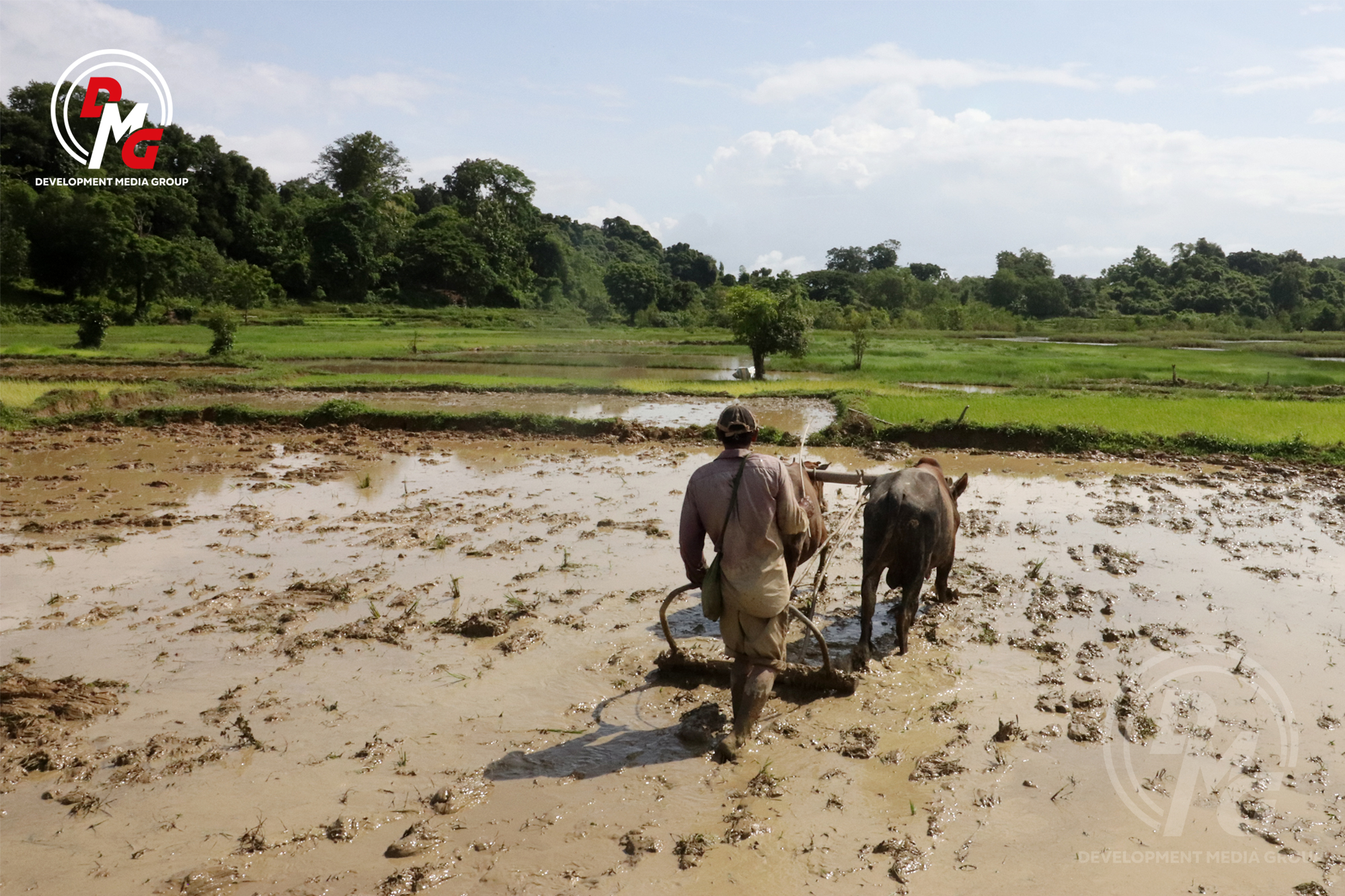
DMG Newsroom
29 June 2024, Thandwe
Most of the farmlands in Arakan State’s Maungdaw, Thandwe, Ann, Taungup and Kyaukphyu townships, where clashes between the Myanmar military and Arakkha Army (AA) are ongoing, remain uncultivated, according to local farmers.
The farmers said that only about 30 percent of the farmland in these areas has been planted with monsoon paddy due to the threat of junta shellings, airstrikes, and landmines.
“Everyone had to flee, so there was no one to work the fields. Farmers from villages near the military camps, junta bases and police outposts are unable to grow monsoon paddy,” said a farmer from Shweyinaye Village in Maungdaw Township.
About 80 percent of farmlands in Nyaungchaung, Shweyinaye, Pantawpyin, Thittaw, Hlabawzar and Inndin villages in Maungdaw Township remain uncultivated.
Residents from more than 20 villages in Thandwe Township have fled the escalating conflict, while farmers from many other villages are finding it difficult to grow paddy due to the high cost of agricultural inputs.
“Cattle deaths are reported due to junta artillery strikes. We cannot cultivate monsoon paddy as we have to flee during the farming season. I don’t know how to make a living,” said one farmer in Thandwe Township.
Elsewhere, at least 120 farmers from 18 villages in Arakan State’s Kyaukphyu Township say they cannot grow paddy due to the risk of landmines planted by the regime.
Junta troops were stationed in those villages and nearby during raids they conducted in January and March. They planted landmines in farm fields, forest paths, on hillsides and near villages, according to locals.
“There have been frequent mine explosions in paddy fields and forests and mountains near paddy fields. So, some farmers from our village do not cultivate their farms,” said a farmer from Kulaba Village.
Meanwhile farmers in Arakan State’s Kyauktaw, Mrauk-U, Minbya, Pauktaw, Ponnagyun, Buthidaung, Rathedaung, Ramree and Myebon townships, which are held by the AA, are struggling to grow monsoon paddy as junta blockades have pushed up prices and made it difficult to buy fertiliser, fuel and other agricultural inputs.
“Due to the high price of fuel, we can’t plough the fields with a power tiller anymore, so we plough the fields with the cows we have. We need seeds and fertiliser. All the farmers are anxious about harvesting monsoon paddy this year,” said a farmer from Apaukwa Village in Kyauktaw Township.
The AA has said it will provide assistance for farmers in Arakan State to grow monsoon paddy amid challenging times for the region’s agriculture sector.
The AA is currently ploughing fields with tractors in some townships, and collecting data to distribute paddy seeds and farming equipment to farmers in need, according to farmers.
There are more than 1.2 million acres of arable farmland in Arakan State, though only some 900,000 acres were put under cultivation last year. Sown acreage is also expected to decline this year due to the various challenges facing farmers.
“Even under normal conditions, there is not enough rice for domestic consumption. If there is less paddy cultivation during this period, there may be many challenges for food security next year. The AA is also responsible for the survival of agriculture in Arakan State,” said a businessman in Arakan State.
Agriculture remains the backbone of the Arakan State economy, with more than 70 percent of the rural population making a living as farmers.




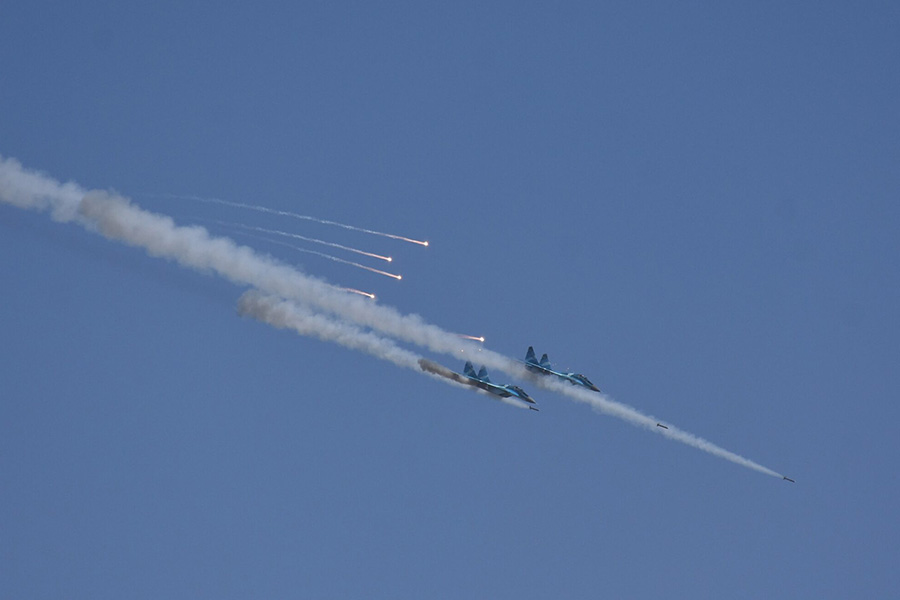
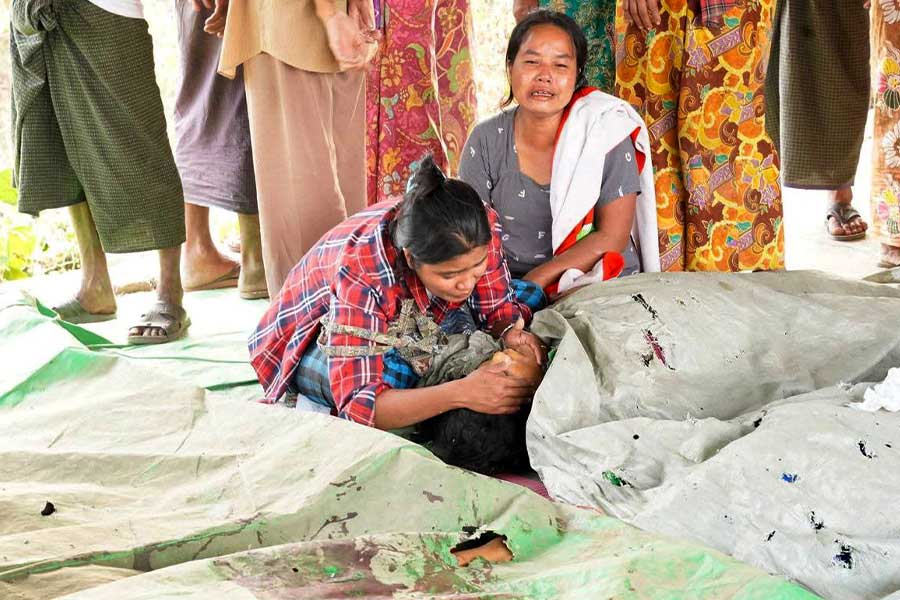
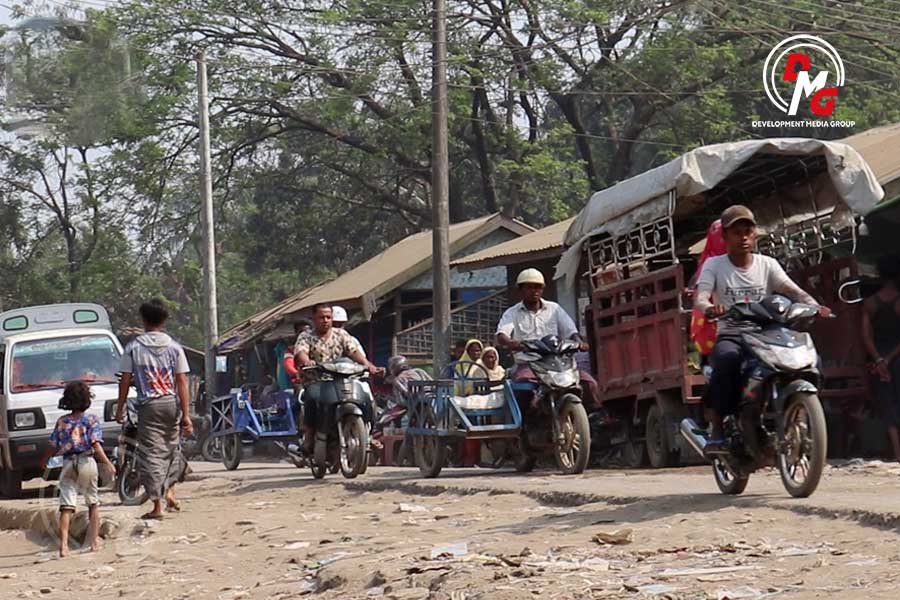
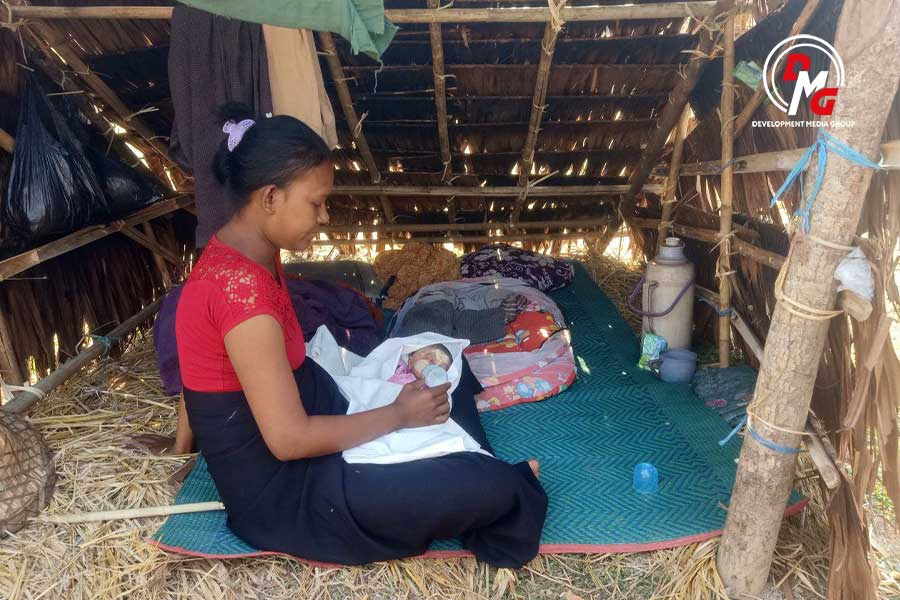
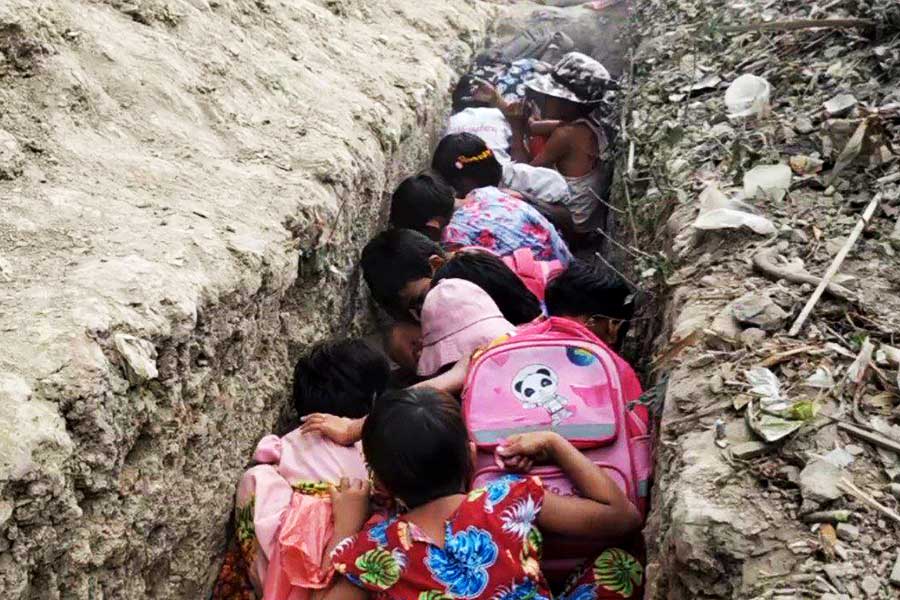








.jpg)